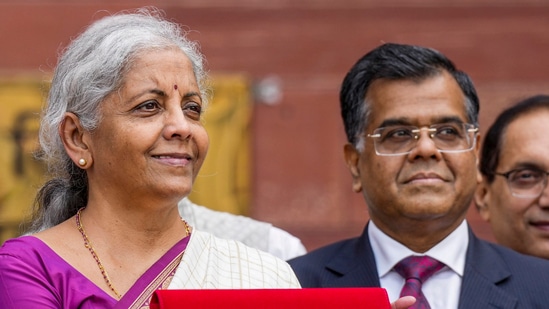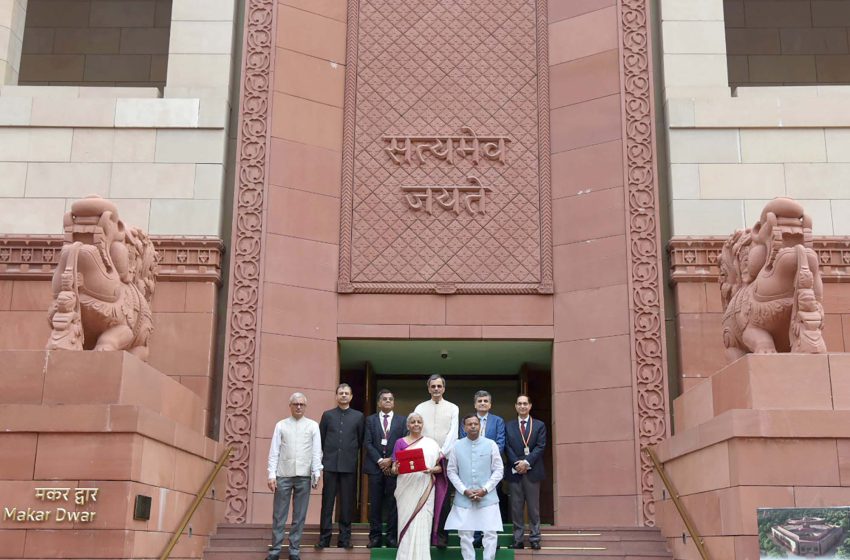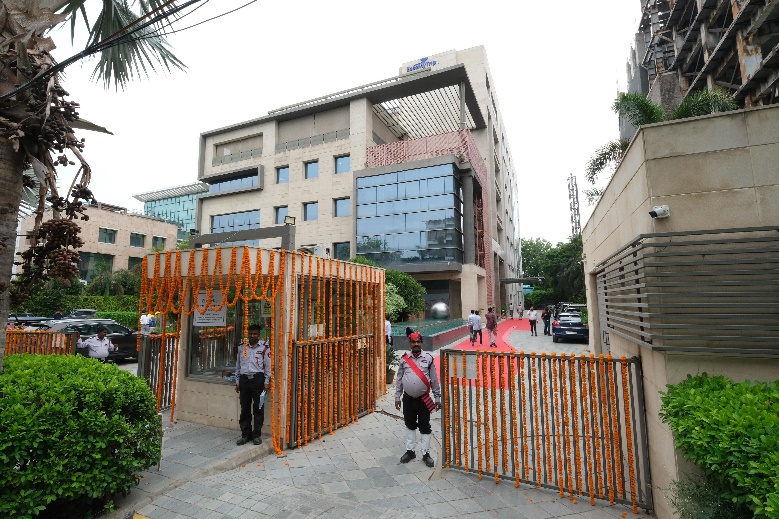The travel and tourism industry in India has expressed disappointment over the Union Budget 2024-25, which failed to address the aviation and hospitality sectors, instead concentrating solely on the development of religious circuits.
Industry stakeholders had hoped for a significant overhaul concerning Tax Collected at Source (TCS) and incentives for tourism promotion. There was also an expectation for immediate efforts to revamp India’s global image as a tourist destination and to introduce visa-free entry on a reciprocal basis.
Here are some of the views of the industry experts:
Madhavan Menon, Executive Chairman, Thomas Cook (India) Limited (Thomas Cook, SOTC, Sterling Holidays and TCI)
This year’s Union Budget has opened new doors to development, specifically for domestic and inbound tourism. With the focus on special development funds/ programms for the socio-cultural-religious potential of iconic temple corridors including Gaya’s Vishnupad & Mahabodhi temples into world-class pilgrim and tourist destinations (to be modelled on the success of the Kashi Vishwanath temple corridor), the Government of India’s intent is encouraging. Additionally, the comprehensive development of the Rajgir Jain Temple site; rejuvenation of the historical gem of Nalanda & Nalanda University into a major religious-tourist centre, would have a multi-pronged impact. While positioning India as a vibrant global tourism destination, it will also accelerate job creation and economic opportunities for allied sectors.
The Budget also appreciated the underleveraged potential of Odisha’s tourism industry by supporting the state’s rich heritage-history, spirituality, craftsmanship and natural beauty.
Recognizing the high potential domestic cruise segment, the Union Budget announcement proposed a simpler tax regime to support/incentivize foreign cruise companies operating in India’s waters.
We’re optimistic about the significant allocation of INR 11.11 lakh crore (constituting 3.4% of India’s GDP) towards infrastructure development. The development of road, rail, air, and waterways will ensure a boost to access/connectivity and affordability, and force multiplier benefits for tourism and allied sectors.
When introduced, TCS was considered disadvantageous to salaried employees as their cash flows were negatively impacted. Post the Budget announcement, salaried employees can now avail of immediate credit of TCS paid on account of their foreign travel – against TDS on salary, enhancing the purchasing power of Indian consumers.
The discontinued SEIS scheme should have been reinstated, as this is meaningful towards encouraging inbound tourism, foreign exchange receipts and a force multiplier for employment generation.
We are disappointed to note that key pillars in India’s Tourism agenda – Aviation & Hospitality were not mentioned as part of the Budget and both standardisation of GST rates on hotel tariffs to 12% and the reduction of ATF remained unaddressed.
Rajesh Magow, Co-Founder & Group CEO, MakeMyTrip
The government’s continued emphasis on infrastructure development is commendable. Enhanced road infrastructure will bolster the travel and tourism sector. We also welcome the initiatives to develop iconic spiritual and cultural sites into world class tourist hotspots.
The decision to reduce the TDS rate on e-commerce operators to 0.1% is a welcome move. Furthermore, the provision of credit for TCS against income tax under ‘Income from Salaries’ is logical and will provide much desired relief to taxpayers who travel internationally.
Chirag Agrawal, Co-Founder, TravClan
The Finance Minister’s proposals to develop tourism corridors at Vishnupad Temple and Mahabodhi Temple, along with support for Nalanda as a tourist hub, represent a positive leap towards enhancing India’s tourism infrastructure. These initiatives could stimulate local economies and attract more visitors, promising substantial growth for the travel and tourism sector.
At TravClan, we believe that integrating these developments with advanced technology is crucial. Incorporating digital tools for better visitor management and promoting seamless travel solutions could significantly enhance their impact.
While the focus on Odisha’s tourism is commendable, a more comprehensive strategy that leverages technology to address the needs of modern travel agents and improve domestic tourism efficiency would be even more beneficial. The economic policy framework for next-generation reforms is a step in the right direction, but practical implementations will be key to fully realising these goals.
Overall, the budget shows great promise for the tourism sector, and adopting innovative solutions could amplify benefits and drive sustainable growth in the industry
Aditya Sanghi, CEO & Co-Founder, Hotelogix
The 2024 budget introduces impactful initiatives for the tourism sector, poised to enhance India’s global appeal as a tourist destination significantly. The government’s decision to promote Nalanda and Orissa, along with the focus on religious tourism, reflects a strategic and holistic approach that will drive economic growth and showcase India’s rich heritage.
Jyoti Mayal, President, Travel Agents Association of India
The main concern raised by TAAI was on the abolishment of TCS on outbound travel which is hindering the ease of doing business for Indian Travel Agents / Tour Operators and increasing the competition with global players from overseas not levying GST or TCS to the passengers. Inbound and Outbound Tourism go hand in hand and to increase inbound, outbound tourism too must increase. TCS puts a spoke in the outbound tourism traffic as the travellers funds are blocked.
We have been reiterating to the Government of India to place the Travel and Tourism Trade, specifically the travel agents and tour operators in the concurrent list and provide rebates to the trade as a result grant industry status.
Missed Opportunities in Promoting Domestic Tourism: The budget falls short in launching robust campaigns to boost domestic tourism, which has become increasingly crucial in the current global context. Promoting local travel can drive immediate economic benefits and foster a culture of exploring India’s diverse attractions.
In conclusion, the financial budget presented by the Finance Minister has significant gaps that could hinder the growth and recovery of the travel and tourism sector. Addressing these issues with a more comprehensive and supportive approach is crucial for unlocking the full potential of India’s tourism industry and ensuring its sustainable development.






